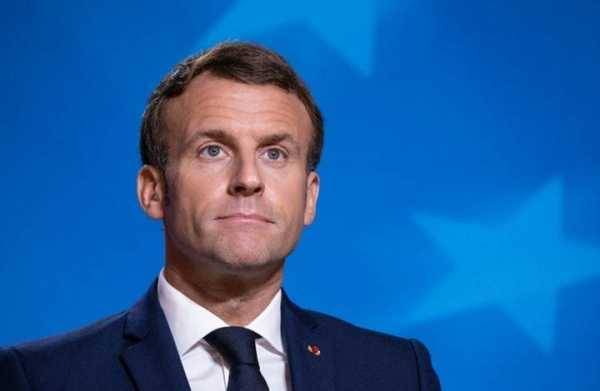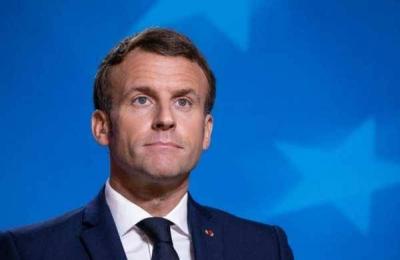After losing his parliamentary majority, pressure is increasing on French President Emmanuel Macron, with rising demands for a referendum on leaving the European Union. Analysts have confirmed that "Macron's second presidential term will be marked by divisions following the expanded influence of the left and far right." Macron failed to secure the required threshold for an outright majority during the legislative elections in France, where his coalition won only 245 out of the 289 seats needed for a majority in the 577-seat parliament.
Macron's fierce rival in the elections, Marine Le Pen, led her party to its largest representation ever in the National Assembly, while the left bloc led by Jean-Luc Mélenchon is forming the largest opposition force. A report by the French newspaper "L'Express" revealed that Macron may be compelled to comply with internal pressure and call for a referendum on his country's membership in the EU. In 2018, Macron stated: "If a similar binary choice were put before voters in France as it was in the UK in 2016 (referring to the Brexit referendum), they might answer the same way." On June 23, 2016, 17.4 million voters representing 52% of British voters voted in favor of leaving the EU, while 16.1 million voters representing 48% supported remaining in it, before the UK officially exited in 2020, ending a tumultuous 47-year partnership between London and Brussels.
Difficult Challenges Ahead for Macron
In this context, political analyst Arthur Lidekerque remarked that with every crisis facing France, such demands arise, but Macron seems to be facing a presidential term full of challenges amid rising opposition support and lacking the majority that would allow him comfortable leadership. Lidekerque told "Sky News Arabia" that "France is at a crossroads, and the electoral results will reflect on the future of the EU. The discontent with the European project is led by the opposition, but it remains mere discussions at the extremes of the political spectrum. The current situation is not the same as in 2018 when Macron himself acknowledged that if a referendum were to happen, the result would favor leaving."
He pointed out that "Europe is currently facing the biggest crisis it has seen in decades in confronting Russia. There will be a need for unity, not disintegration, which may be Macron's response to proponents of leaving the European bloc." He added, "We live in a world of unpredictable events; no one can assess Britain's departure after severe economic crises like the COVID-19 pandemic and the repercussions of the Ukraine war. However, generally, the situation does not allow for any risks; plans must be made if an agreement is reached regarding the referendum."
Regarding the demands of those advocating for this idea, he mentioned they see that "the EU has not responded to their legitimate desires. There may be discussions of social unrest or feelings of anger, as well as being impacted by waves of migrants due to a decline in protective measures at the EU's external borders, along with criticisms often aimed at Europe because of bureaucracy and complexity."
Generation "Frexit"
The newspaper "L'Express" quoted Éric Noirez, a prominent figure in the "Frexit" movement and a member of the "Generation Frexit," stating that Macron's "catastrophic" election results have given tremendous momentum in France for leaving the EU. Noirez said, "Naturally, and given the circumstances, the question of our membership in the EU will impose itself on public debate and will become central in the coming period. If opposition parties want to be credible on the street, they will increasingly have to take clear positions and commitments regarding the EU. At the very least, they will have to call for a referendum on our EU membership similar to the UK's."
During his election campaign, Macron stated that the far-right French candidate Marine Le Pen secretly wants to take the country out of the EU, pointing to "the fact that Le Pen said she wants to refrain from paying EU fees and change some aspects of the French relationship with the EU." He added, "Some have tried this and faced problems," stating that "this means she wants to leave, but she does not think she has the confidence to say it. She has included in her program that she wants to create an alliance of nationalist countries."




